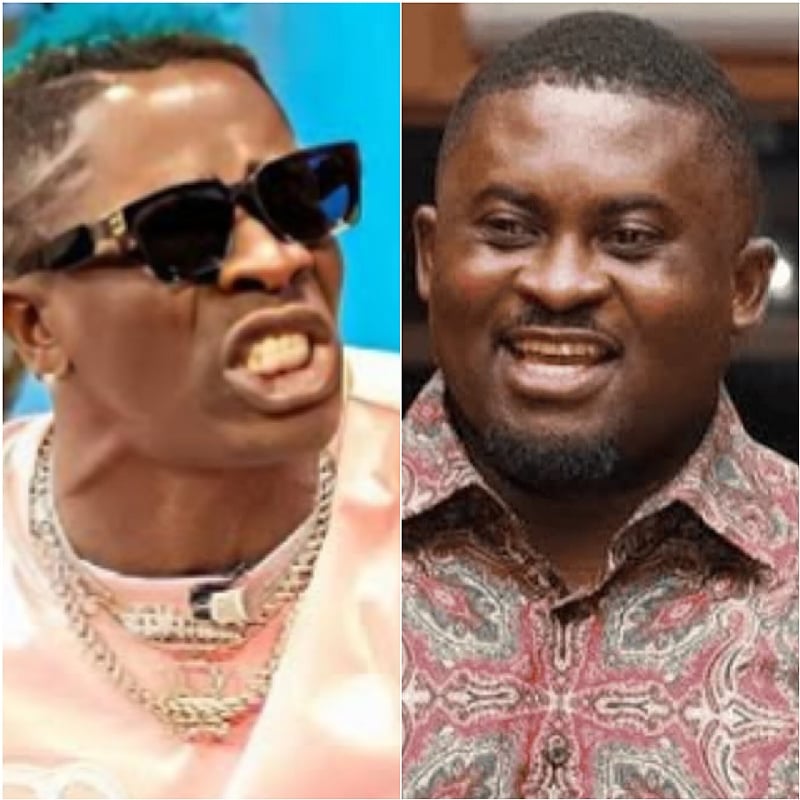The controversy surrounding Shatta Wale and Reverend Daniel Yaw Donkoh stems from a prophecy delivered by the Reverend, foretelling the musician’s imminent death by gunshot. According to Reverend Donkoh’s vision, Shatta Wale would initially evade an assassination attempt, only to be fatally shot in a subsequent attack. He appealed to the public to intercede on Shatta Wale’s behalf through prayer, urging the artist himself to engage in fasting and prayer to avert this foreseen tragedy. This prophecy, however, has ignited a firestorm of criticism and threats of legal action from Shatta Wale, who has publicly denounced Reverend Donkoh and challenged the Ghana Police Service to arrest him within a week.
Shatta Wale’s outrage centers on what he perceives as the irresponsible and fear-mongering nature of such public pronouncements. He accuses Reverend Donkoh of leveraging religious platforms to instill fear and chaos within society, actions he believes should be condemned and legally addressed. Furthermore, he criticizes former Inspector General of Police, George Akuffo Dampare, for allegedly enabling this behavior by failing to hold religious figures accountable for making such alarming predictions. Shatta Wale argues that these pronouncements not only create undue anxiety but also contribute to a climate of fear, ultimately undermining the rule of law.
The musician’s condemnation extends beyond Reverend Donkoh, encompassing a broader critique of the practices of certain religious leaders in Ghana. Shatta Wale accuses some pastors of manipulating and exploiting vulnerable individuals through false prophecies and deceptive messages, motivated primarily by financial gain rather than genuine spiritual guidance. He contrasts this behavior with his own artistic endeavors, emphasizing his commitment to using music as a platform to inspire hope and encourage hard work among his followers, celebrating the beauty of life and the world. This stark contrast underlies his frustration with what he sees as a perversion of religious principles by these self-proclaimed “men of God.”
Shatta Wale’s frustration is palpable in his public statements, where he challenges the authenticity and motives of these religious figures. He questions the divine source of their authority, accusing them of chasing trends and exploiting innocent individuals for personal profit. He contrasts their actions with his own understanding of God’s work, highlighting his mission to spread positivity and encourage his listeners to embrace the opportunities life offers. This perceived divergence in purpose fuels his anger and strengthens his resolve to confront what he considers a deceptive practice.
The artist also hints at possessing spiritual power himself, suggesting that he is capable of actions that would serve as a lesson to the country. While he clarifies that these actions would not involve violence, the underlying message is a warning against testing his limits. This statement adds another layer of complexity to the situation, raising questions about the potential implications of this ongoing feud and the extent to which Shatta Wale is willing to go to defend his name and challenge what he perceives as an unjust system.
In essence, this incident highlights the ongoing tension between freedom of expression, religious practices, and the responsibility of public figures to avoid inciting fear or panic. Shatta Wale’s strong reaction underscores the potential harm of unsubstantiated prophetic pronouncements, particularly when they involve sensitive matters like life and death. It also raises questions about the role of law enforcement in regulating such pronouncements and the broader implications for religious freedom within the context of public safety and social responsibility. The unfolding situation promises to be a test case for how Ghana manages the delicate balance between these competing interests.














